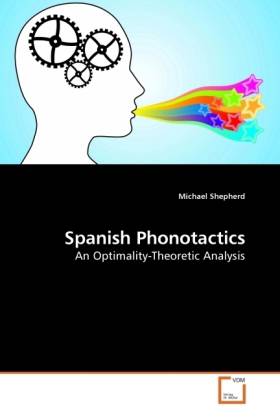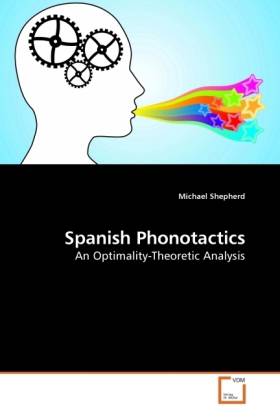
- Afhalen na 1 uur in een winkel met voorraad
- Gratis thuislevering in België vanaf € 30
- Ruim aanbod met 7 miljoen producten
- Afhalen na 1 uur in een winkel met voorraad
- Gratis thuislevering in België vanaf € 30
- Ruim aanbod met 7 miljoen producten
Zoeken
€ 48,45
+ 96 punten
Omschrijving
This volume presents an Optimality-Theoretic (OT) analysis of the role of the syllable in Spanish phonology. The explanatory power of the syllable has earned it a central role in phonological theory, and this distinction has followed it into Optimality Theory. Chapter 1 divides simple and complex onsets and codas into well formed, ill formed, and unclear/marginal cases. Chapter 2 presents an OT analysis of syllabification. Chapter 3 demonstrates how not only the need for phonological repairs, but the specific repair strategies employed and even the variable application of some repairs follow from constraint interactions. Chapter 4 examines such ONSET-motivated phenomena as vowel merger and diphthong formation, discusses the possibility of ONSET-motivated epenthesis, and presents a comprehensive analysis of the underlying status of glides. Chapter 5 presents an analysis of coda phenomena, including several patterns of /s/ and nasal debuccalization with varying degrees of opacity, place assimilation by nasals and laterals, and 'depalatalization.' Chapter 6 concludes with a novel OT analysis of plural formation that obviates the need for the concatenation of a plural morpheme.
Specificaties
Betrokkenen
- Auteur(s):
- Uitgeverij:
Inhoud
- Aantal bladzijden:
- 108
- Taal:
- Engels
Eigenschappen
- Productcode (EAN):
- 9783639220575
- Uitvoering:
- Paperback

Alleen bij Standaard Boekhandel
+ 96 punten op je klantenkaart van Standaard Boekhandel
Beoordelingen
We publiceren alleen reviews die voldoen aan de voorwaarden voor reviews. Bekijk onze voorwaarden voor reviews.











